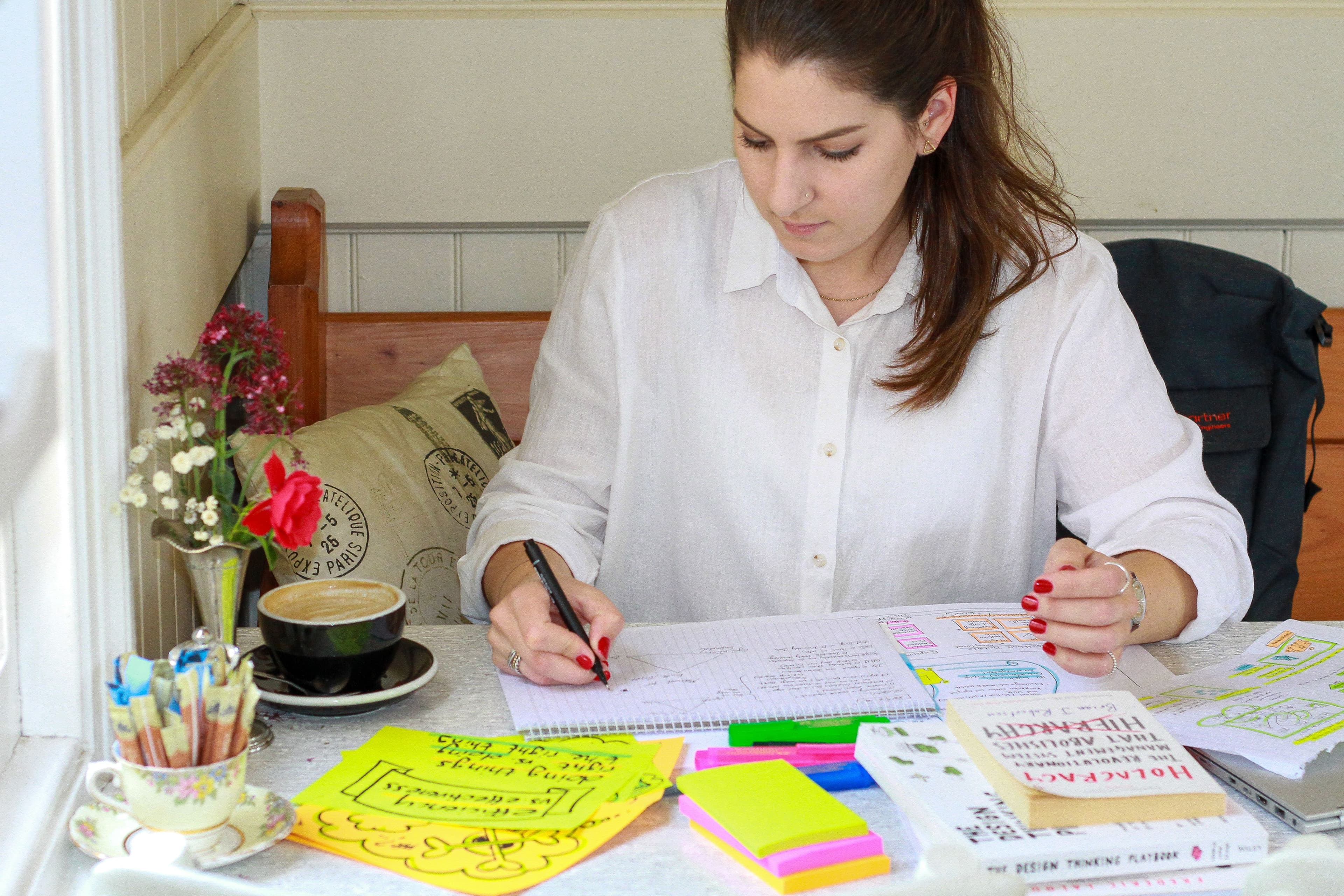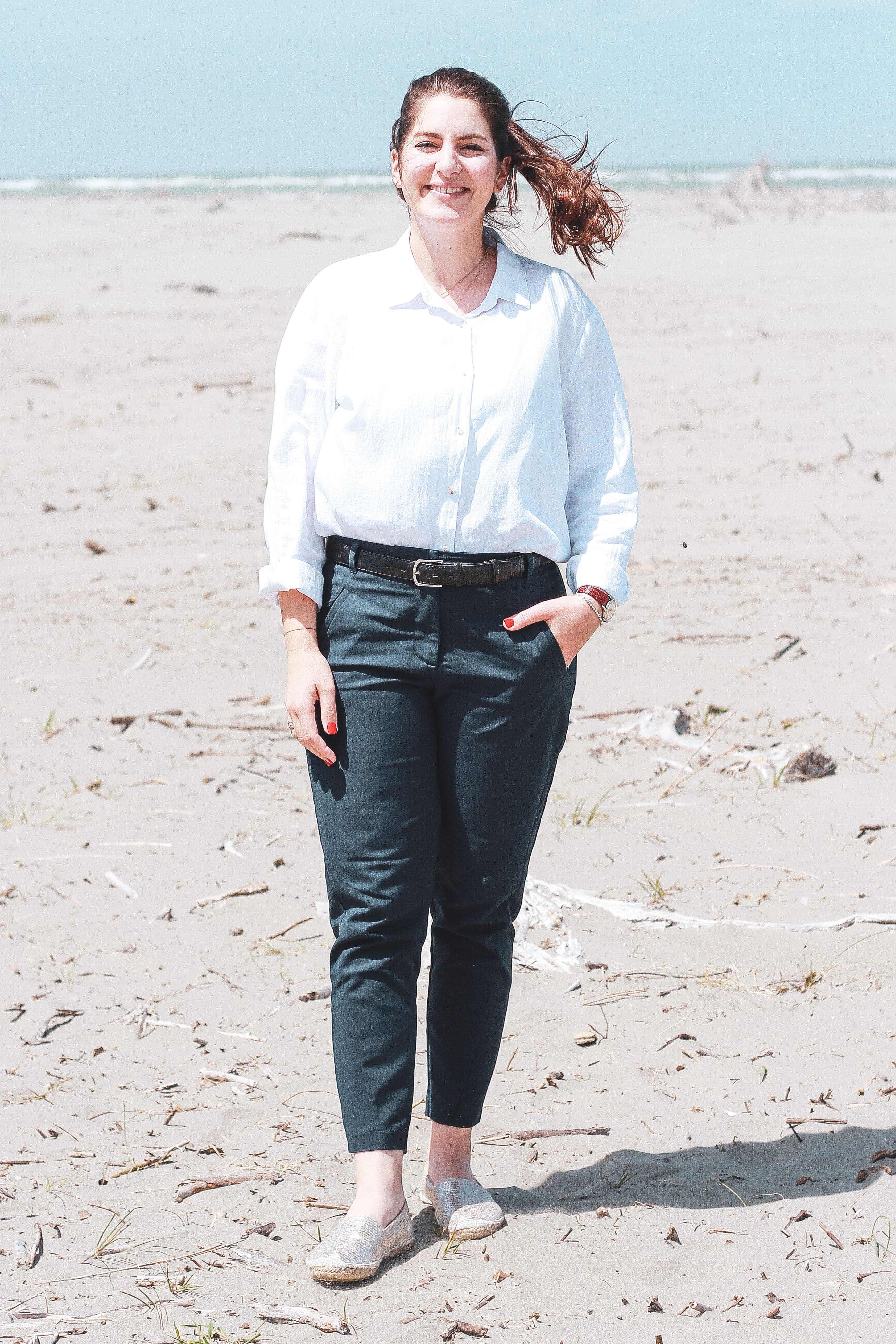Open Talk
Night shift in New Zealand
An interview with Léonie S. Mollet about making the working world agile – and why, thanks to TBF, she’s able to live this experiment herself.
What are you doing down in New Zealand?
I’ve been here for two years writing a PhD dissertation on the Future of Work. Specifically, it focuses on how HR is changing in agile organisations. My work is a close examination of two future-oriented organisations in Switzerland and New Zealand, so I’m definitely not sealed off in an academic bubble. I’ve stayed on as an employee of TBF while working on my PhD, albeit with reduced hours and from a remote set-up. My work with TBF is associated with HR, management and organisational issues – mostly internal, though also for external customers from time to time. Being actively engaged with both theory and practice is hugely important to me, as it enables me to find the sweet spot between ideas and action. Leadership (including self-leadership) and empowerment are two areas that I’m focusing on, and I myself am a guinea pig in terms of putting them into practice.

Office, library or café: flexibility in form suits the work.
What have you learned about yourself (and TBF) in New Zealand?
I have become very aware of how important it is to link all areas of my life. This does not explicitly mean having a work/life balance, as this implies that work isn’t properly a part of your life, but rather building links between living, learning and working that create a coherent life plan. I’ve definitely discovered more about myself since being here. Not having a comfort zone or a safety net automatically makes you aware of your own shortcomings. This can be sobering at times, but it encourages you to keep learning. For example, I have broken away from needing everything organised in the normal sense. A little creative chaos is essential and it’s important to accept complexity rather than fight it. I’ve adopted this mindset because it makes me uncomfortable if things are too clear and ordered. Instead, I’ve begun separating urgent matters from important ones as part of my daily routine. Living amongst Kiwis has taught me to be pragmatic and calm – two qualities that can sometimes be difficult to develop in Switzerland with our packed daily routines.
What do we need for ‘extreme remote working’ to become a viable option?
I consider it a great privilege that I can continue to help shape TBF while pursuing my dream of doing my dissertation here. The things you need when attempting ‘extreme remote working’ are trust and a willingness to experiment ̶ we had no idea whether or exactly how this would work. My supervisors and I had a shared belief that I am a valuable asset to TBF thanks to my skills and experience, which made this leap into the unknown worth the risk. Thankfully, the decision has paid off – and continues to do so. Essentially, I’m a part-time employee who has maximum flexibility with regards to location and scheduling. And what’s the benefit of that? Now each working day suddenly has 24 hours! Because my time in New Zealand, we have happily adopted a system of sending tasks around the world. This flexibility, which was initially a risk, has turned into a win-win situation for us. Being able to offer a sharpened external perspective on things has been an asset. It’s clear to us that physical workplaces are becoming less and less important. While this is true, we still need stable relationships for configurations like this to work. Once you know someone, connection is no longer necessarily tied to your physical location. Of course, I still benefit from returning to Switzerland every six months and being able to speak with contacts face to face. I like to see people and be in touch with an organisation during a normal working day, and with my current arrangement I’m more conscious of the opportunities to do this when they’re there.
What does the working world of the future look like?
Erich Kästner said: ‘Paths are created by walking them’. My mantra is: I go where I can learn the most. I believe in using your strengths as the basis for personal development. There are a very limited number of cases where this results in a traditional, linear career path. It has become increasingly apparent to me that a consistent alignment of one's own activities with those of the customers and the organization is the only way to quickly anticipate changes within our network. These personal, customer, and organization variables are becoming much less set in stone. They are becoming more individual, more fluid. Of course, you need interdisciplinary skills (e.g. communication, the ability to make decisions, etc.), and these don’t just appear overnight. To develop them, you need guidance and catalysts. I’m also noticing that centralised HR silos are being broken down in favour of coaching or mentoring guilds that that can be tapped as a decentralised resource (e.g. for team development, learning process support and workshop facilitation at customer sites). This concept of a support system with self-organization is something that we are putting into practice.

